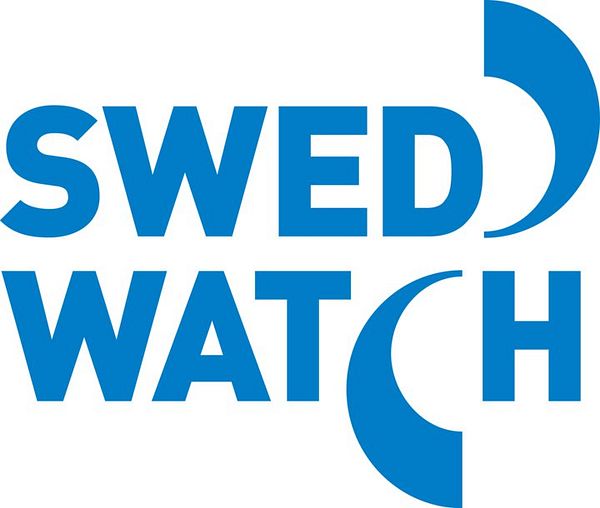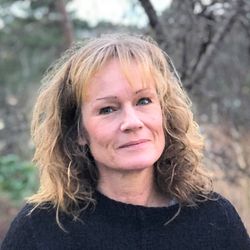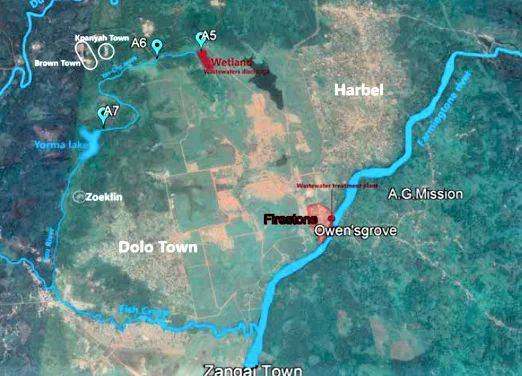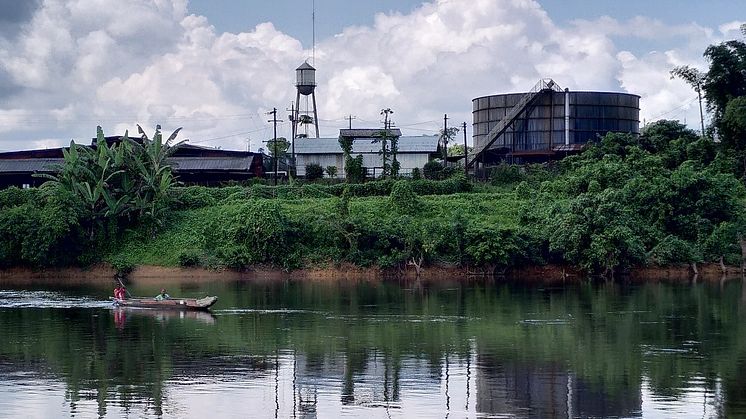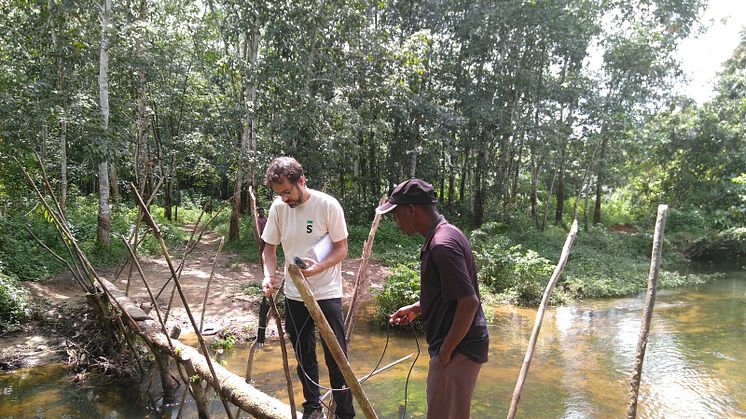
Pressmeddelande -
Firestone Liberia and Bridgestone Corporation must investigate pollution claims
Natural rubber is used in many products from car tyres to clothes. Its processing provides livelihoods for millions. But it is also one of the world’s worst water polluting industries. In a new report Swedwatch calls on Bridgestone Corporation, one of the world’s largest tyre companies, and its indirect subsidiary Firestone Liberia Inc to investigate serious environmental pollution in the vicinity of its rubber processing plant in Liberia.
Firestone Liberia operates the world’s largest rubber plantation in Owensgrove, 50 km west of the capital Monrovia, and is the country’s largest private employer with a land concession occupying nearly ten percent of arable land.
During a Swedwatch investigation, air and water samples from around the processing site were analysed by project partner NGO Source International. The water analysis found levels of heavy metals such as manganese and aluminium that clearly exceeded limits for drinking water. According to Source International, these pollutants pose a severe health risk for humans as they bio-accumulate throughout the food chain and can cause serious illness. There were also high phosphate and nitrogen levels and evidence of eutrophication, known to deplete fish stocks.
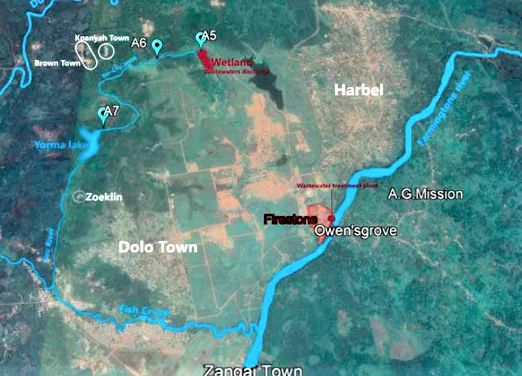
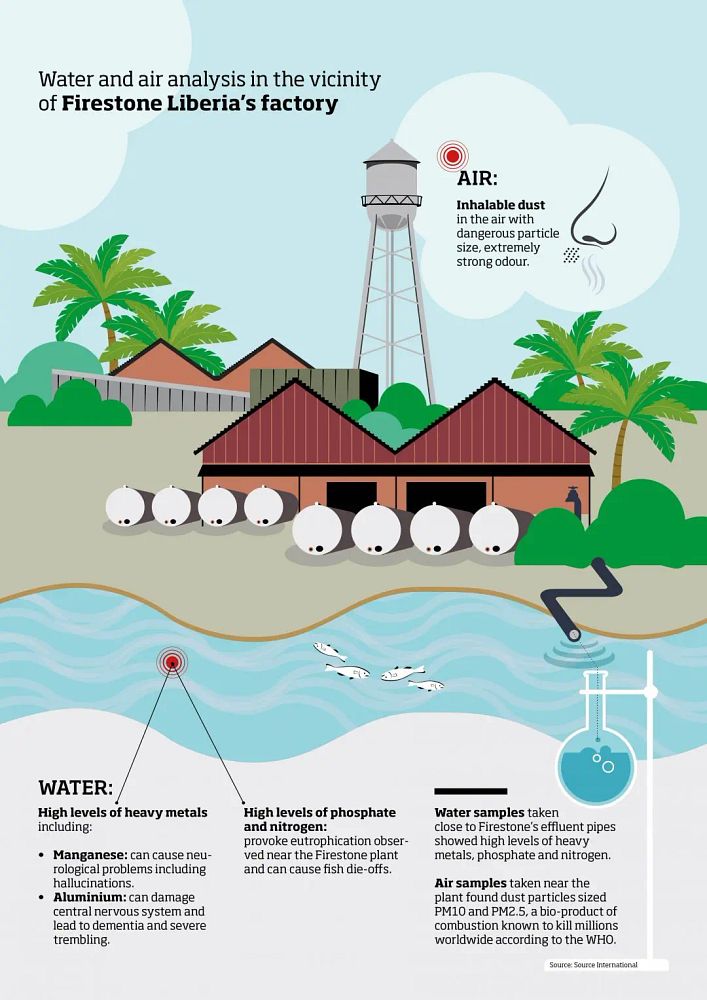
The sampling results suggested that the company’s wastewater treatment system had not been working adequately and confirmed reports from local communities affected by water and air pollution. Similarly, air quality analysis and testimonies from community members suggested that the use of industry-standard air scrubber technology to improve air quality was not sufficient.
“This situation has been ongoing for years and the company still claims that they are treating wastewater and filtering the air,” said Francis Colee, director of Green Advocates International, Swedwatch’s project partner in Liberia. “But still, the local communities don’t have enough fish to eat because of water pollution and they have a lot of pollution-related health problems.”
Infections, nausea and food shortages
In meetings with local residents in early 2020, Swedwatch collected reports of people falling ill after consuming local water supplies and suffering from a range of health problems such as infections, nausea, as well as food shortages caused by dwindling fish stocks. Some described the smell from the factory as so intense that it causes headaches and nosebleeds. Just ahead of the report’s publication, community representatives described the situation as unchanged.
The industrial production and processing of natural rubber has long been associated with wide-ranging negative human rights impacts around the world, including child labour, environmental pollution and land grabbing. This report adds to extensive documentation by national and international civil society groups on how local communities continue to be affected by pollution around Firestone Liberia’s factory in Harbel.
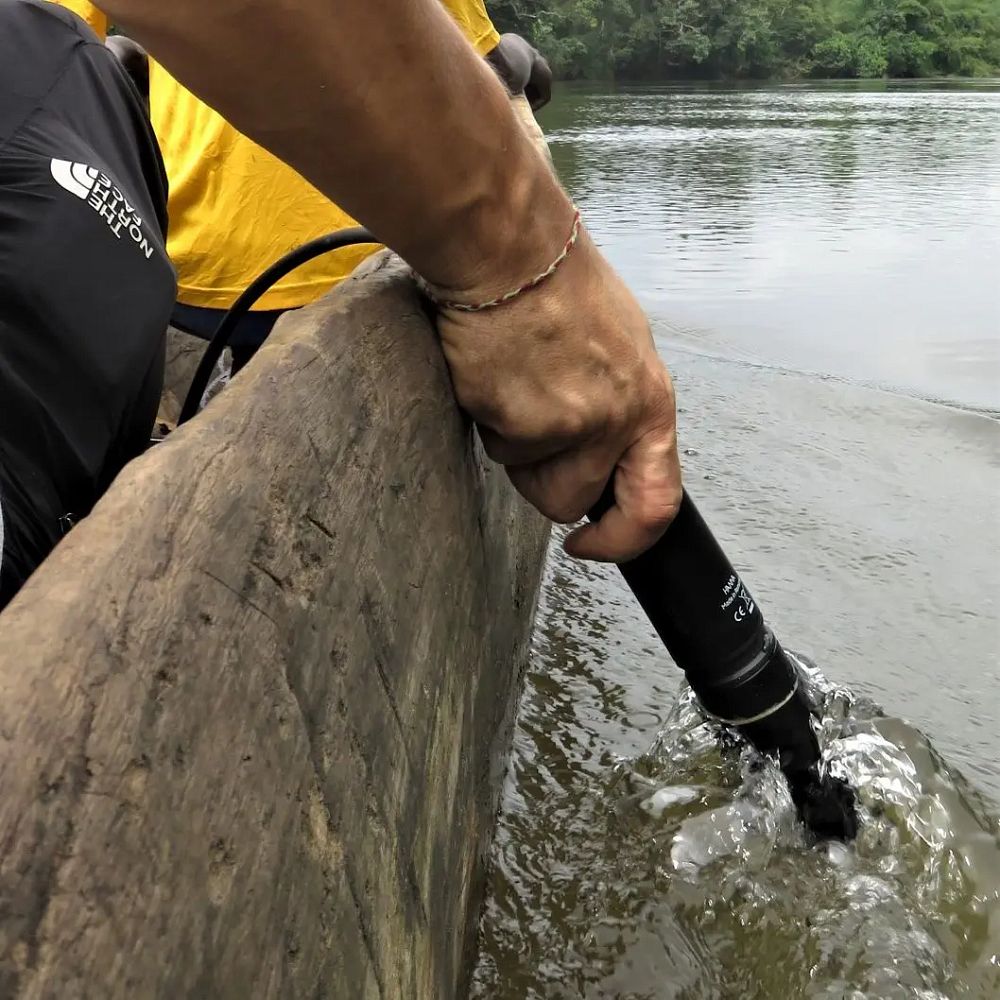
Communities want transparency
Local community leaders have long called for transparency regarding the severity of suspected water pollution, as well as an objective assessment of overall pollution levels. In dialogue with Swedwatch, Firestone Liberia acknowledged that certain nutrient constituents in the wastewater have, on multiple occasions, exceeded permitted standards but claimed to be unaware of any harm or damage resulting from this. Furthermore, the company claimed to operate within all required air-permits.
Community members told Swedwatch that this information has not been readily available to local communities.
The environmental pollution reported by local community members contradicts the vision of a fair, equitable and environmentally sound natural rubber value chain and principles of safe water management agreed by the Global Platform for Sustainable Natural Rubber (GPSNR) members, including Bridgestone Corporation. The alleged lack of access to information is not in line with the company’s commitments under the GPSNR Policy Framework or with international guidelines, such as the United Nations Guiding Principles for Business and Human Rights (UNGPs) and the OECD Guidelines for Multinational Enterprises.
Swedwatch and its project partners Green Advocates International and Source International call on Firestone Liberia and Bridgestone Corporation to urgently conduct human rights due diligence and a human rights and environmental impact assessment in relation to its rubber processing plant in Liberia. These results must be shared with communities and action taken to rectify any shortcomings.
Read the full report.
Link to Swedwatch interview with Flaviano Bianchini, the director of Source International. The NGO Source International provides local communits with scientific studies and analysed air and water samples around Firestone Liberia´s rubber processing plant as part of the Swedwatch report Murky Waters. The interview was carried out in February 2021:
https://swedwatch.org/sv/okate...
Related investigations:
Ämnen
Kategorier
Swedwatch är en ideell och politiskt obunden researchorganisation. Vårt mål är att företag, investerare och stater ska ta ansvar för mänskliga rättigheter och miljö och att rättighetsinnehavare kan göra sina röster hörda.
